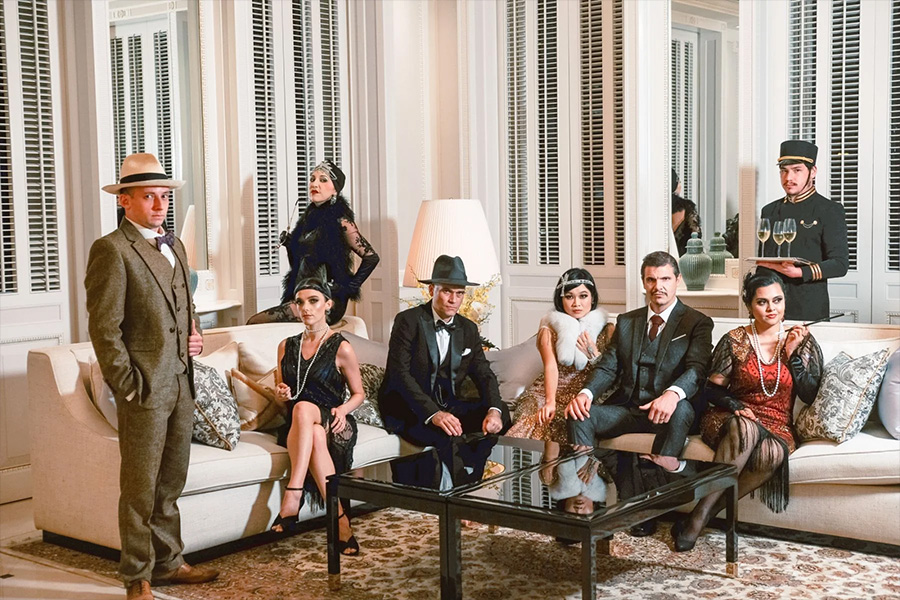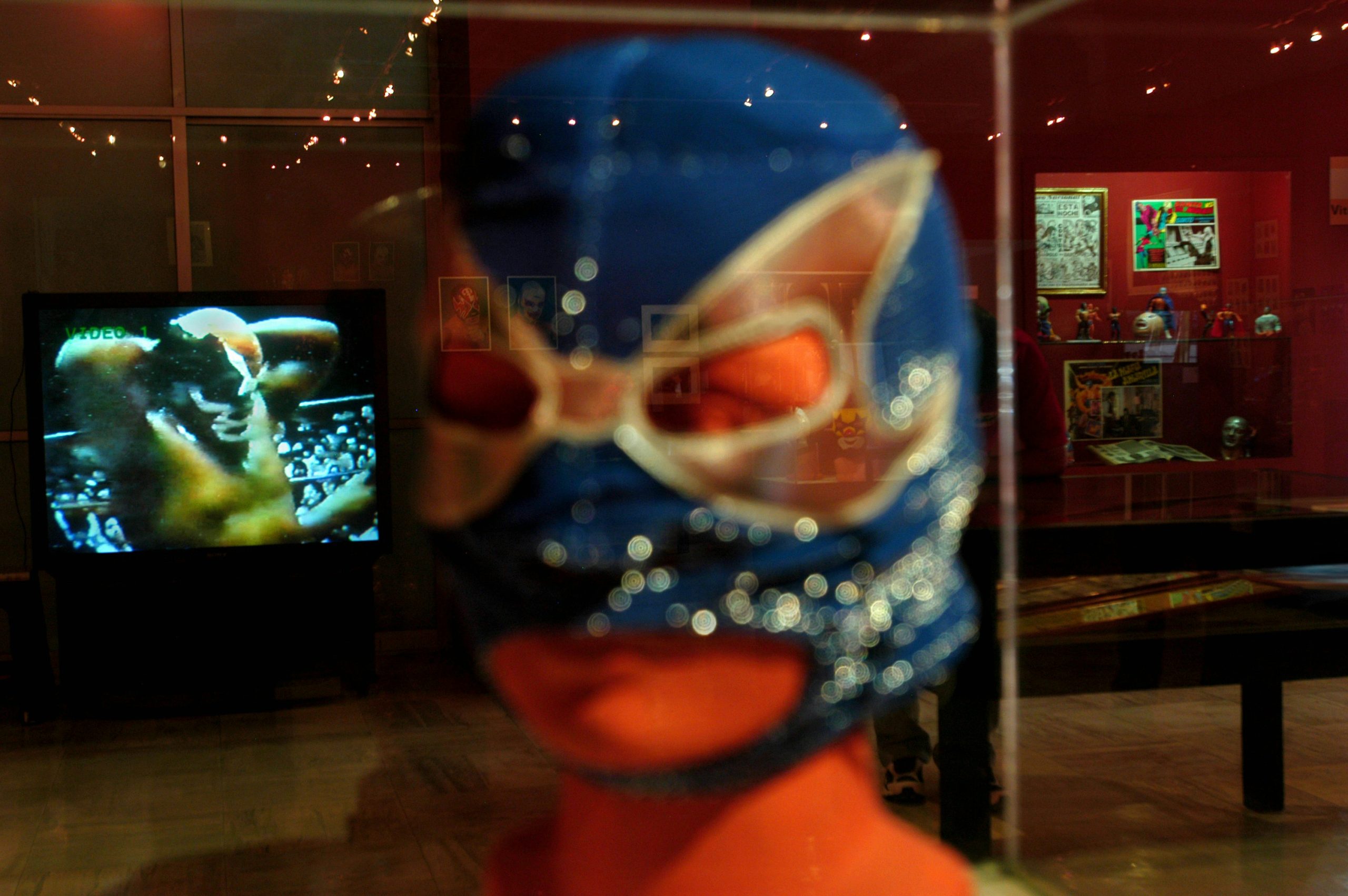At The WXO, we want to connect the dots across the Experience Economy and across the globe – so each week, we’ll be bringing you our round-up of the experiential stories that we think reveal something interesting, relevant or transferrable about the Experience Economy.
Welcome to Experience Radar 56, where we’re playing with sounds at the Centre Pompidou, finding out how AI tech will influence the future of design, and getting the lowdown on Louis Vuitton’s new experiential complex in Paris.
1. AI Will Alter How We Design Everything
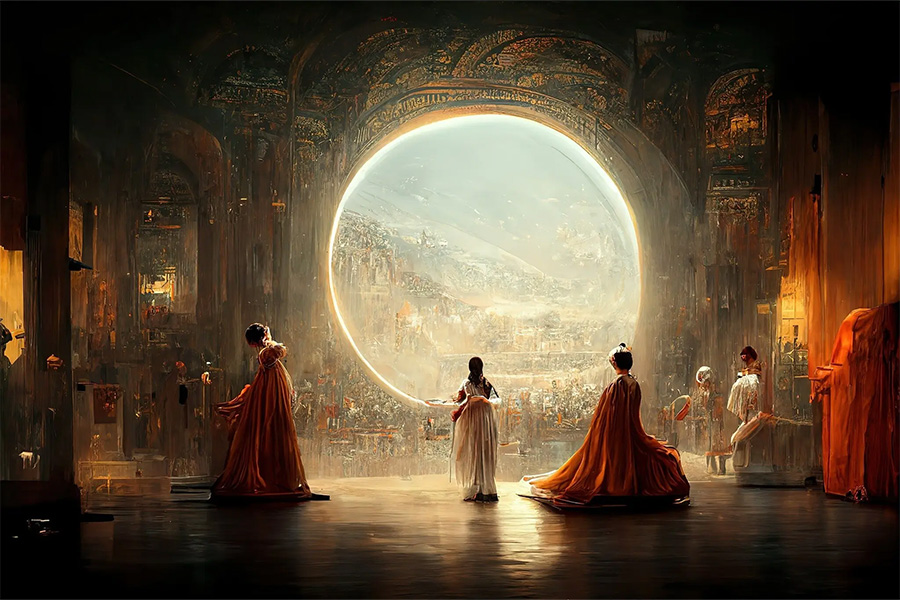
Love it or loathe it, AI is now capable of creating artwork better than most humans. In a fascinating exploration of the trend in a recent Wired article, Kevin Kelly predicts that machines will soon transform how we design everything. “Our machines have crossed a threshold. For the first time in history, humans can conjure up everyday acts of creativity on demand, in real time, at scale, for cheap,” he writes. If anyone is fearful that a robot is about to take their job, Kelly offers these words of reassurance: “After interviewing the creators of these generators, I can make a clear prediction: not a single artist will lose their job because of this new tech.”
Likening AI art creators to film directors prompting their cast on set, Kelly believes there is skill behind generative art – the best images are made from a detailed back and forth between man and machine – thus, the minds behind them deserve credit for the work and to show and sell their creations like any other artist. Kelly predicts that the tech powering AI art will soon become “a visual search engine and a central node in whatever we do visually”. The same pattern-seeking AI tech will be used “to help design automobiles, draft laws, write code, compose soundtracks, assemble worlds to entertain and co-create the stuff we do as work”.
2. The Future Of Retail Will Be Co-Creative

With big brands leaning in to customisation in a big way, the future of retail is set to be co-creative, as consumers are given an increasing amount of power over the creative process. As reported by Wunderman Thompson, creativity is emerging as a status symbol within the fast-evolving world of Web3, and brands are increasingly incorporating interactive elements into their virtual activations to cater to a growing desire among consumers for more creative control over the products they buy, signalling an exciting democratisation of commerce.
We recently reported about Nike’s new virtual marketplace .Swoosh, where users can co-create their own pair of Nick kicks and earn royalties on sales. Meanwhile, fashion brand Forever21 is inviting people to run their own virtual shops on Roblox. Called Forever21 Shop City, the platform gives fans the chance to customise their store design – taking in everything from lighting and music to furniture – and cherry-pick the Forever21 items they want to sell in their shop from the brand’s latest collections. Over at Salvatore Ferragamo’s new concept store in New York, touch screens allow people to customise their own pair of gender-neutral trainers by mixing and matching colourways.
3. Centre Pompidou Becomes Giant Instrument
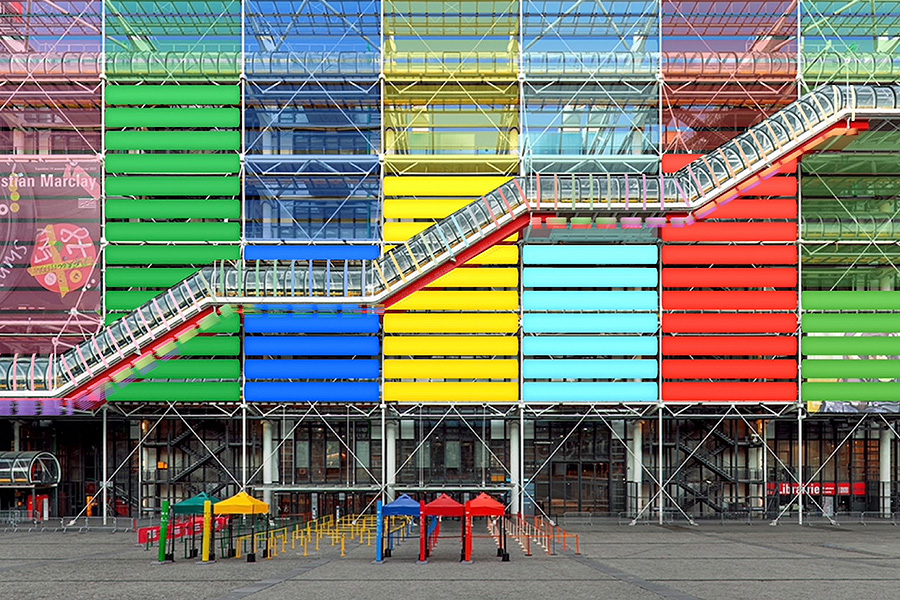
Visual artist and composter, Christian Marclay has turned the outside of the Centre Pompidou in Paris into a giant musical instrument. The artist created the AR experience, called ‘Playing Pompidou’, in collaboration with Snapchat’s Paris-based AR Studio, using Snap’s proprietary Landmarker technology to animate the building’s exterior. The goal is to give visitors the chance to interact with the façade of the museum and immerse themselves in Marclay’s sonic universe. Visitors can trigger the AR experience, which features a host of sounds recorded by Marclay from inside the museum, using their camera on the Snapchat app.
Audio fans will be able to create a personalised music loop that they can share with their friends through SnapChat, and different versions of the experience can be accessed from the front of the museum or by scanning the exhibit’s QR code on the museum’s website. “In addition to a visual AR experience, I want Snapchat users to have an auditory experience. I invite them to play and make a musical composition with sounds that I recorded inside the museum. Sounds they wouldn’t normally associate with music,” Marclay said. Inside the museum you can also check out ‘All Together’, Marclay’s immersive audiovisual installation.
4. Paris To Get A Louis Vuitton Hotel
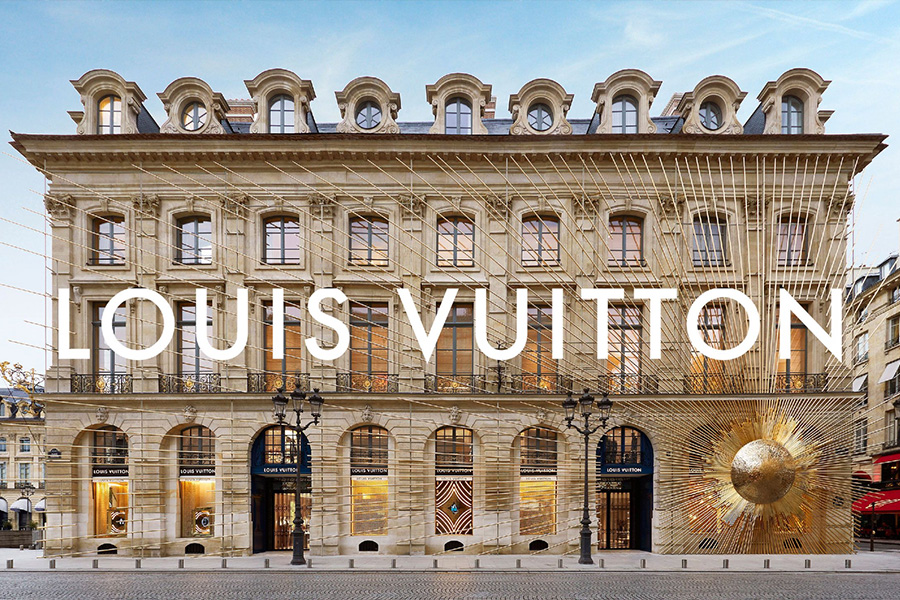
Offering a new meaning to stepping into a brand universe, luxury goods giant LVMH is due to open its first Louis Vuitton hotel in Paris in 2027. As reported by CPP Luxury, Louis Vuitton’s corporate offices in Paris are set to be transformed into a sprawling complex including the world’s first Louis Vuitton Hotel and its largest store worldwide, which will offer “the most spectacular view in the world” stretching from the Eiffel Tower to Notre-Dame. The 400,000 sq ft experiential space is being dubbed ‘LV Dream’ and will feature an exhibition area showcasing the brand’s collaborations with leading artists, from Jeff Koons to Yayoi Kusama.
Visits to the gallery, which is expected to attract 2,000 visitors a day, are free but need to be pre-booked. The space will also boast a café selling LV-branded pastries, a chocolate shop and a gift shop. “We’re rewriting the history of cities for the 21st century as we speak, and brands like Louis Vuitton have to be a force in it, we have to be a participant. It goes way beyond a store,” said LV’s CEO, Michael Burke. “Our clients want a 24/7 relationship and from an ecological perspective, it’s crazy to have all these office buildings that are occupied only 20% of the time.” The ambitious project reflects a growing push by fashion brands into hospitality, as consumers increase spending on experiences.
5. Sensory Marketing Is On The Rise

Given how closely connected scent is to memory, the rise of ‘sensory marketing’ in the retail and hospitality arena is a no-brainer. I can still conjure the sophisticated white tea scent wafting through the Shangri-La hotel in Paris. It’s a clever marketing tool, as regulars who walk through the doors of any Shangri-La hotel around the world will be greeted by that familiar signature scent. Bulgari is similarly savvy, having its fragrances emitted through the ‘scented windows’ at Italian department store La Rinascente and in totem dispensers in Milan’s Duomo square. The more touchpoints the scent features across, the higher the chances of creating positive associations with the brand.
A growing number of brands are seeking to harness the power of a signature scent. According to BoF, Integra Fragrances works with everyone from Fendi and Salvatore Ferragamo to Emirates, creating bespoke fragrances by internationally renowned perfumers based on their brand values and target audience. The opportunities in retail are immense, giving brands the chance to enhance the shopping experience and strengthen customer loyalty through positive associations. According to Shopify, scent marketing can increase sales by up to 11%, customer satisfaction rates by 20% and dwell time by 40%.
6. Chanel Launches ‘Olfactory Odyssey’
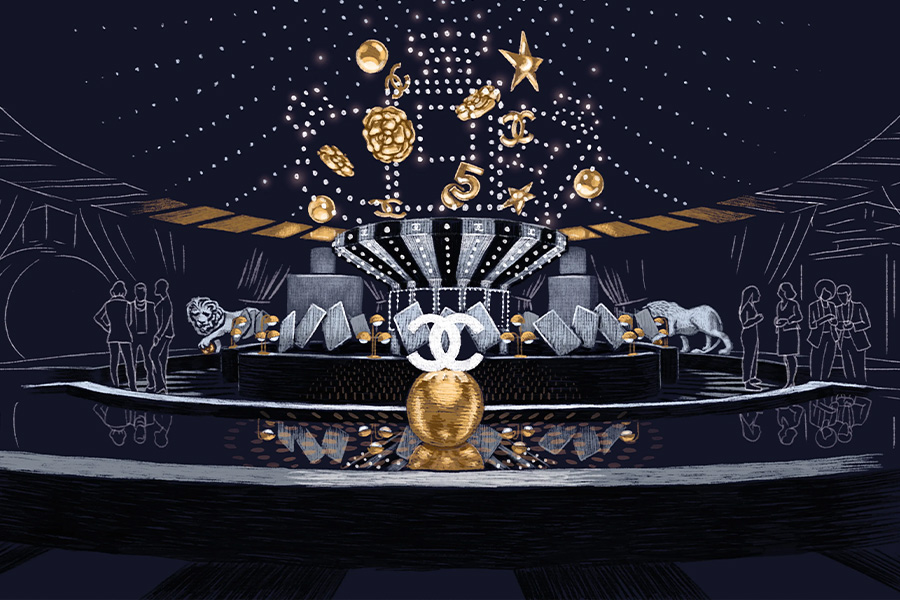
Speaking of scent, Chanel has launched an immersive fragrance experience in Paris in a bid to allow fans of the brand the chance to delve deeper into the Chanel world and learn more about its history. As reported by Vogue, the ‘olfactory odyssey’, dubbed Grand Numéro de Chanel, is taking place at the Grand Palais Éphémère, which usually serves as a show space for Chanel’s catwalk collections. The brainchild of Thomas du Pré de Saint Maur, Chanel’s global creative head, the year-in-the-making project pushes the boundaries of what an immersive experience can be.
“We didn’t want this to be a historical explanation or an exhibition that only talks about one dimension of our fragrances, because they don’t have a linear story,” Thomas told Vogue. After being greeted by a ringmaster, the experience promises to take guests on a ‘sensorial journey’ across five rooms that take a physical and emotional deep dive into the inspirations behind Chanel’s most iconic scents. “It had to be interactive and put the audience in a position of being active – the event will be like a kind of interactive cabaret,” he explained.
7. Hong Kong Hungry For Experiential Dining
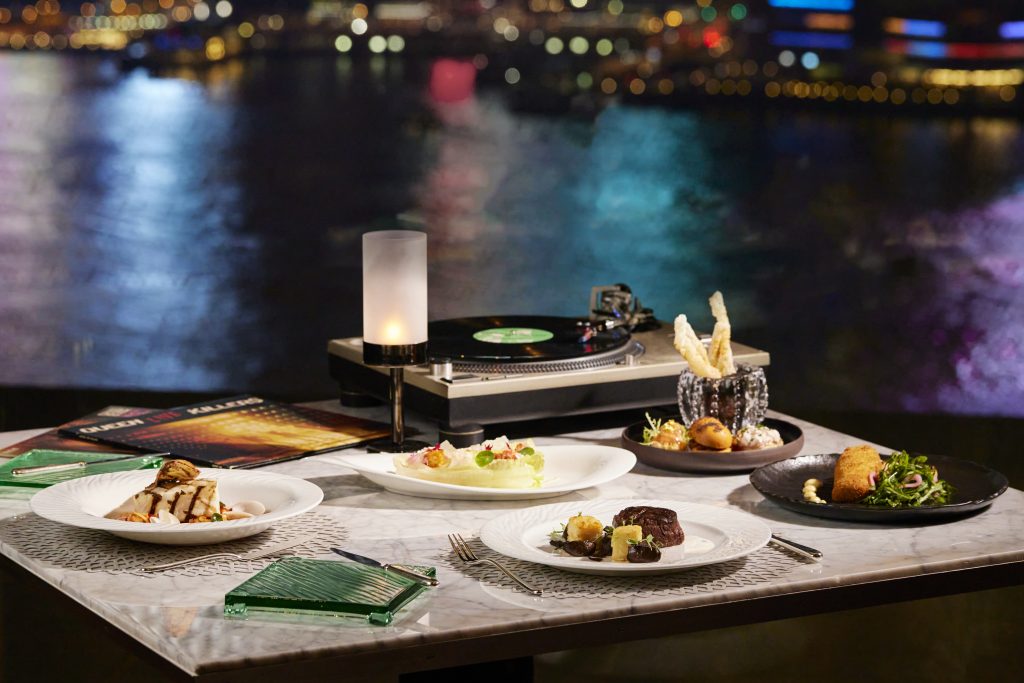
Hong Kong has built up an appetite for experiential dining, as the age-old tradition of dinner and a show gets taken to new heights. As reported by the South China Morning Post, from disco-themed meals to murder mysteries and edible histories, Hong Kong restaurants are embracing immersive dining with gusto. Spearheading the trend is Felix, a fine-dining restaurant at the Peninsula Hong Kong hotel, which launched a Great Gatsby-themed immersive dining experience last year in collaboration with performance troupe Secret Theatre. The glitzy event proved such a hit that the hotel has launched a new immersive dining experience inspired by famed New York nightclub Studio 54 featuring cameos from Jerry Hall, Jack Nicholson and Andy Warhol.
Over at Popinjays in The Murray hotel in Hong Kong’s Central district, guests can take part in An Unsolved Heist; an immersive, five-course, ‘whodunit’ experience where actors mingle with diners in between courses of confit salmon, onsen egg and baked apricot to collaboratively catch the thief. An instant hit, Popinjays’ latest concept, The Missing Fortune, sees diners try to work out who stole a famous artwork during a celebratory dinner for Chinese statesman Sun Yat-sen. Jing, while a private dining room in Auntie Ayi restaurant in Admiralty is dedicated to immersive dining experiences across Cantonese feasts that tell the story of the Tang dynasty alongside voice-overs and film clips.

